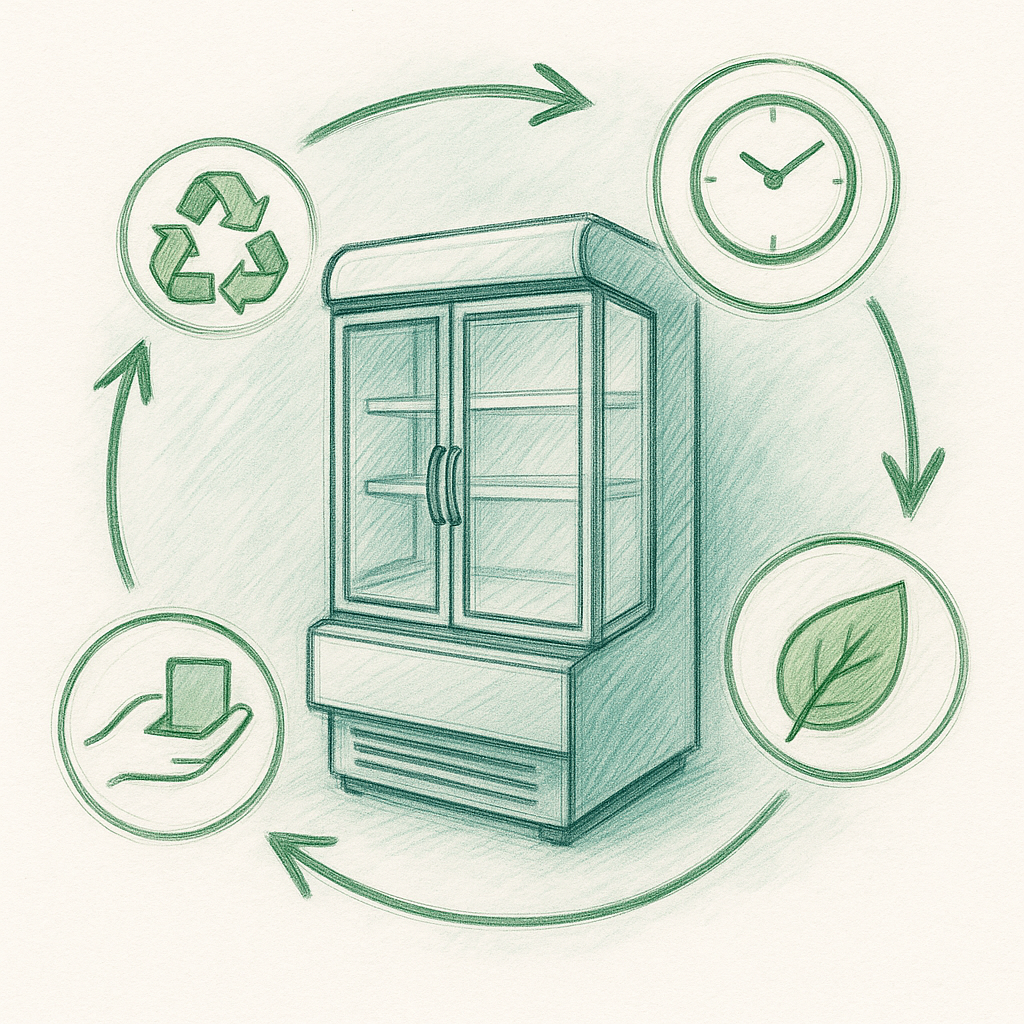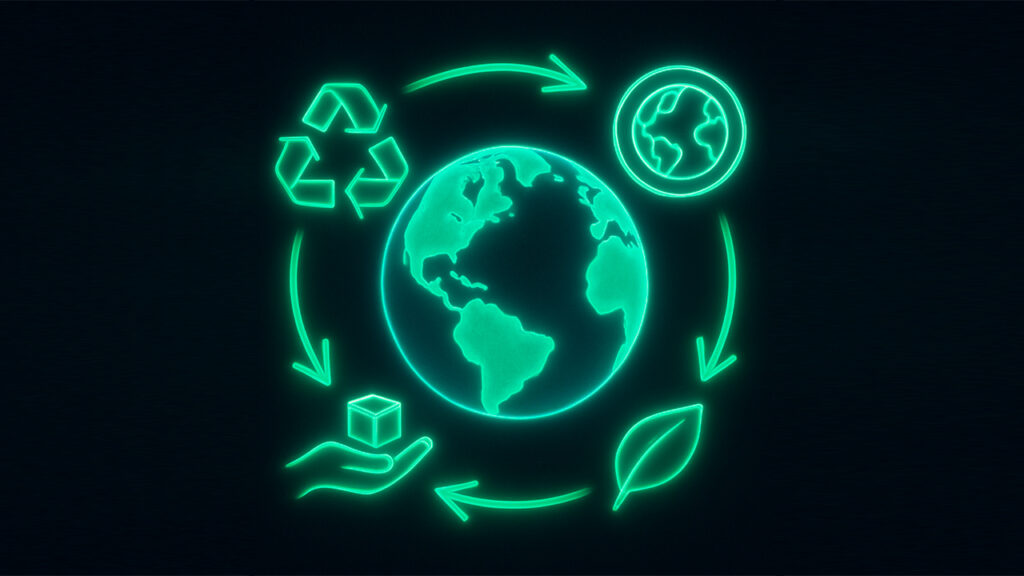Context in Europe: The European Green Deal
The circular economy and sustainability fall under the framework of the European Green Deal, the EU’s major strategy to transition towards a climate-neutral economy by 2050. This deal sets a binding target to reduce greenhouse gas (GHG) emissions by at least 55% by 2030, compared to 1990 levels.
The new regulation includes specific delegated acts for the sector starting in 2027, with GHG emissions and sustainability requirements to be enforced from 2030 onwards.
EXKAL is not just adapting to this vision—it is leading the change. We are one of the few companies in the sector collaborating directly with the European Commission on the initial draft that will shape the specific regulation for commercial refrigeration furniture. This collaboration enables us to anticipate real solutions and to develop equipment that meets the highest standards of sustainability, efficiency, and circularity.
Circular Economy: Beyond Reuse
The circular economy is neither a passing trend nor just another word for recycling—it represents a profound transformation in how we design, manufacture, and use products. Unlike the linear model of “use and dispose,” we promote a regenerative model that extends product lifespan, reuses products and components responsibly and sustainably, and reduces resource consumption from the design phase onward.
Circularity is not simply about using second-hand products, especially when those—such as some old refrigeration cabinets—consume twice as much energy as current models. While reuse may seem like a sustainable option, keeping outdated and energy-hungry technologies in operation goes against the core principles of the circular economy, which include energy efficiency, reducing food waste, and lowering emissions. In such cases, it is more sustainable to recover the equipment at the end of its life, dismantle it, reclaim its materials, and reintegrate them into new production processes—thus closing the loop more efficiently and responsibly, combining environmental sustainability with technological innovation.
This approach begins with design, continues through production, stays active during use, and extends to the end of the product’s life cycle. At EXKAL, we implement this vision by manufacturing refrigeration furniture that is durable, repairable, energy-efficient, and made from recoverable materials.

The New Ecodesign Regulation: ESPR (EU 2024/1781)
The new Ecodesign for Sustainable Products Regulation (ESPR, EU 2024/1781) further boosts this approach. Effective from July 2024, it will set specific requirements for commercial refrigeration cabinets (RDCs) from 2027, with mandatory application from 2029.
What does this mean for supermarkets?
The shift to a circular and sustainable economy is not only a regulatory obligation, but also a major operational and reputational opportunity for supermarkets. Thanks to EXKAL’s innovations, our clients can:
- Reduce energy consumption, generating direct savings on operational costs.
- Comply early with European legal requirements, avoiding last-minute adaptations or urgent investments.
- Reduce food waste, through better preservation of fresh products and fewer losses.
- Strengthen their brand image as responsible and environmentally committed players.
5 Key Benefits for the Planet:
- Reduces waste and pollution, by preventing unnecessary waste generation.
- Lowers exploitation of natural resources, by utilizing existing materials.
- Helps combat climate change, by reducing carbon footprint across the life cycle.
- Drives innovation and green jobs, through new sustainable business models.
- Protects biodiversity, by reducing pressure on ecosystems and natural environments.
With this strategy, we support our clients in making more responsible decisions, preparing together for a more efficient, transparent, and planet-friendly future.


